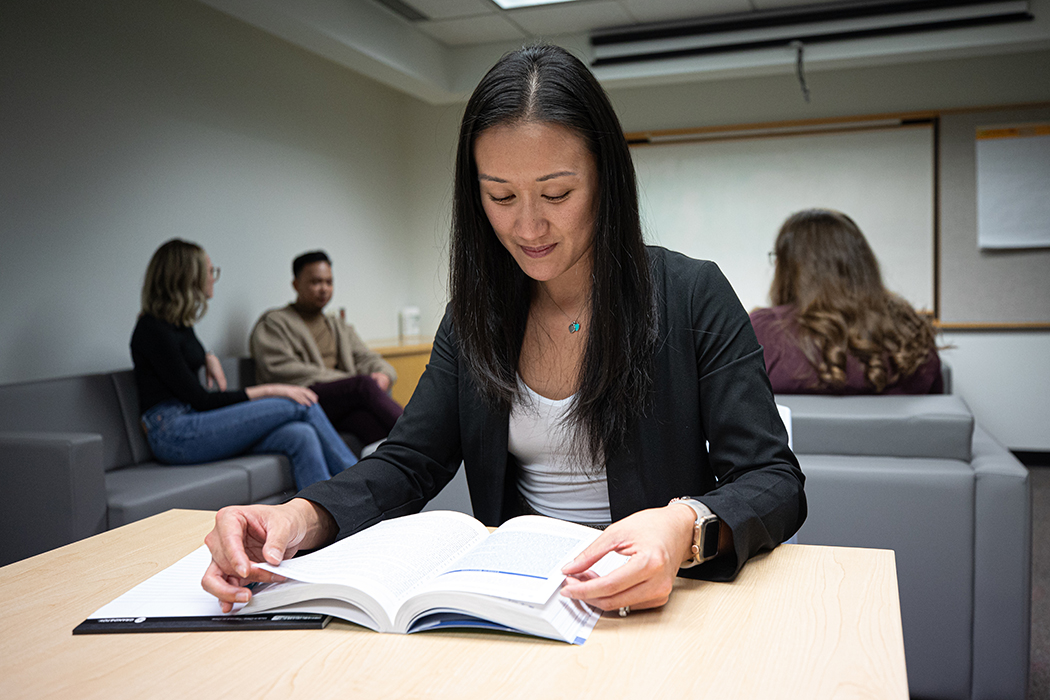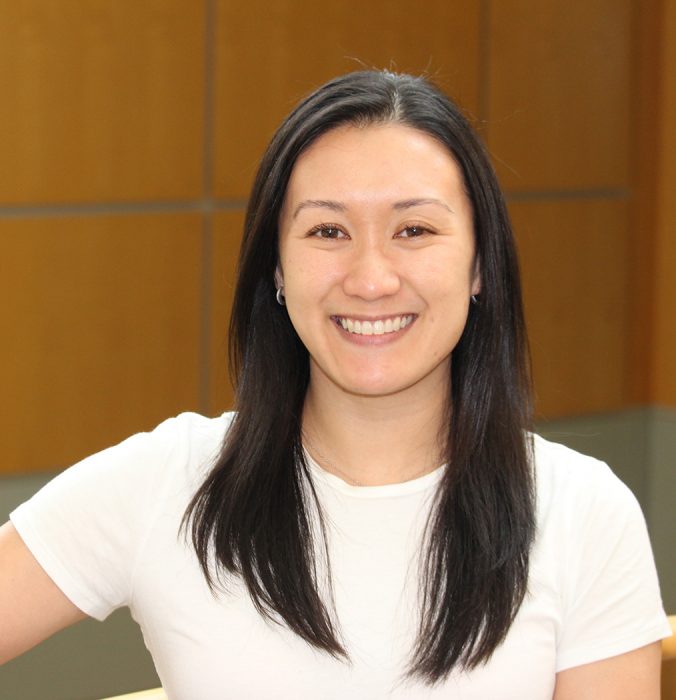
Rady grad student profile: Trinh Nguyen-Lu explores stress and coping in newly graduated nurses
Celebrating Asian Heritage Month at UM
After graduating from UM with a bachelor’s degree in nursing and working for a few years in emergency rooms and intensive care, Trinh Nguyen-Lu returned to the College of Nursing, Rady Faculty of Health Sciences as a clinical instructor in 2017. At the time, she had no plans to become a graduate student, but that changed when she saw that she could make a difference in preparing the next generation of nurses.
Nguyen-Lu, 34, was born and raised in Winnipeg. Her parents moved to Manitoba as refugees from the Vietnam War in the 1980s. She has always been interested in health care as a way to give back to the community.
She started the master’s program in 2020 and bridged into the PhD in nursing program the following year.
UM Today spoke with Nguyen-Lu about her research and passion for helping Manitoba’s future nurses.
What got you interested in nursing?
My parents divorced when I was young, so I grew up in a single-parent household with my dad moulding me into the person I am today. When he was escaping from Vietnam on a small boat, he made a promise to himself that if he survived this journey and made it to a new country where he could settle, he would make a new life for himself but also never forget where he came from. In addition to supporting his family back home, he also gives back to our local community through food donations and other acts of kindness. For me, being a nurse allows me to give back to my community in the best way possible.

Trinh Nguyen-Lu
Can you describe your research and why you see it as important?
I will be looking at new nursing grads in Manitoba, and that period when they’re entering the workforce. We all know that health care can be a stressful environment to work in. People talk about resilience, but I think you also need a good set of coping strategies to be able to thrive in that environment.
I became interested in research when I started working as a clinical instructor at UM, educating a new group of students about what it means to be a nurse. I saw so many students come through that were really strong, but then all of a sudden they struggled in a testing situation. I saw a lot of students fail because they were overwhelmed. And it’s not that they don’t have the knowledge, because I know they do. I’ve seen them practice, they have the skills and have been engaged the entire time.
How did your clinical work inspire your research?
I saw a lot of my co-workers, especially during the pandemic, leave the bedside early in their careers. Not everyone will leave the profession completely, but some will just because they’ve had enough. I’m hoping that through my study, I’ll be able to support the new grads a bit better so they can thrive in the environment, so they can manage and stay working as a nurse. There’s always going to be sick people who need care, so we need people working at the bedside.
I was working at the ICU around the time I came back to do my master’s. Seeing the new grads that came in to help lighten our loads really inspired me. I was able to teach these new grads the basics of caring for Manitoba’s critically ill. I realized new grads have the foundational knowledge to be a nurse, and with the proper supervision and support, it would be possible to teach them how to care for a critically ill patient.
What else motivates you to do this work?
I think it’s knowing that, down the line, I will be able to make a difference. I enjoy nursing. I enjoy teaching. I want the next generation of nurses to be as good as the previous ones, but right now, they need a little more support when they get out into the real world. The COVID-19 pandemic really changed their educational experience and the clinical setting.
I’m also hoping that whatever I discover specific to nurses can be adapted to other health professions as well, because we are never working by ourselves.
What are your future plans?
I would love to apply to be a professor at the College of Nurisng. I’d love to improve the undergrad program as much as we can so our new grads are thriving out there. We have no intention of leaving Manitoba and I want to see people get the best possible care here.
This Q&A is part of a series on UM Today featuring Rady Faculty of Health Sciences graduate students. You can find more grad student profiles here: #Radygradstudents.






